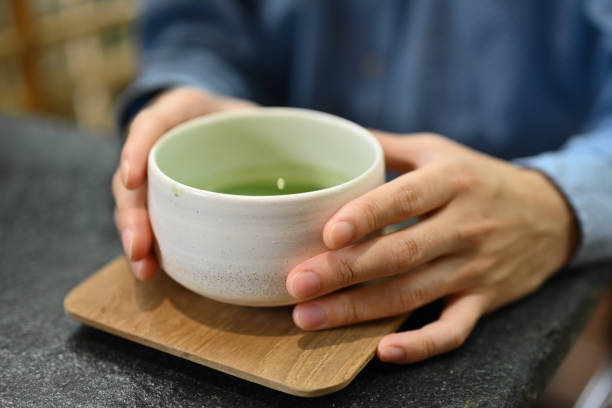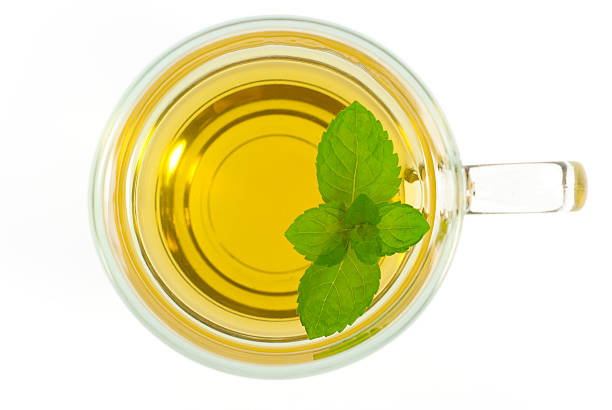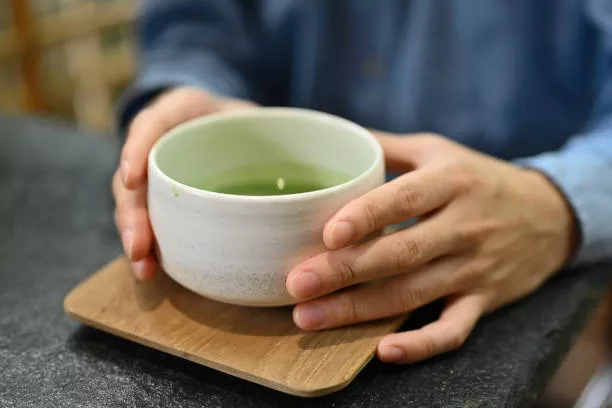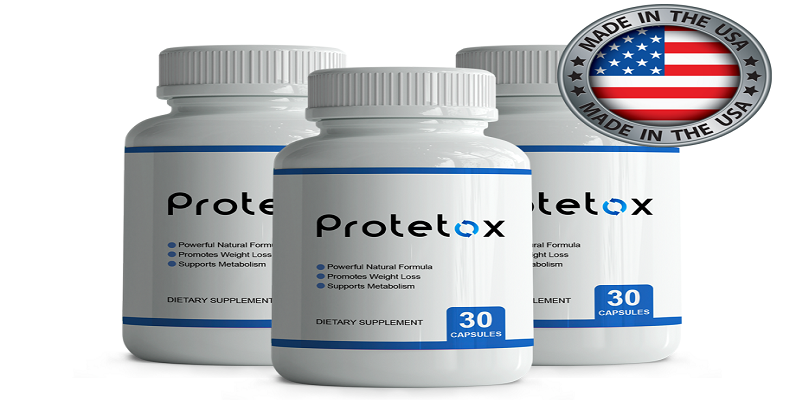The Benefits of Green Tea for Men’s Fitness
Green tea’s polyphenols play an integral part in improving metabolic rate and fat oxidation, acting as natural anti-oxidants and increasing insulin sensitivity.
Caffeine found in green tea can provide an energy boost and assist endurance and strength training, while its high concentrations of L-Theanine mitigate any associated jitters.
Increased Metabolism
Your metabolism is the process by which your body converts food to energy for movement and other essential bodily processes. A faster metabolism burns more calories and is an easier way to lose weight. Green tea contains several natural compounds which may increase metabolism such as polyphenol EGCG which has been shown to promote fat burning while simultaneously increasing your metabolic rate.
Green tea is an excellent source of caffeine, which has been shown to enhance performance in various exercises and sports. Caffeine acts as a stimulant, keeping you alert and focused during workouts; furthermore, its increased activity increases central nervous system activity, leading to improved reaction times and endurance gains.

However, it should be noted that most studies on green tea have used extracts and supplements containing isolated components rather than actual brewed green tea. Brewing method can have an impact on caffeine and nutrient levels; for instance boiled, steeped, and then strained green tea contains less caffeine and phytonutrients than loose leaf tea cups.
A small 2008 study conducted on participants given green tea extract prior to exercising demonstrated an increase in fat oxidation rate of 17%. Scientists attributed this result to its active constituent, EGCG. Increased levels of EGCG stimulated central nervous systems leading to increases in adrenaline production which led to more effective fat burning.
Green tea’s effectiveness for fat loss lies in its ability to aid in the breakdown and transport of fatty acids into the bloodstream, leading to significant reductions in overall body fat. Furthermore, its active compound (EGCG) can boost fat-burning hormones such as norepinephrine and adiponectin which aid fat burning processes in our bodies.
Green tea’s metabolism-enhancing benefits can be felt as early as 30 minutes after eating or prior to exercise, so for maximum effect it is best to drink several cups each day. For maximum effectiveness it should be enjoyed multiple times each day in order to obtain full benefit of green tea’s full potential.
Increased Fat Oxidation
Green tea increases levels of hormones that tell fat cells to break down and release their stored fatty acids back into circulation, where they can be utilized by cells like muscle cells as energy. This process occurs thanks to green tea’s main antioxidant EGCG which blocks an enzyme called catechol-o-methyltransferase and allows your body to utilize more norepinephrine, an adrenergic receptor-stimulating hormone that promotes fat breakdown; combined with caffeine, the fat-burning effects of green tea can be amplified further.
One study demonstrated a combination of short term EGCG ingestion and intermittent sprinting exercise resulted in a 12% increase in fat oxidation relative to placebo; although its exact mechanism remains unknown; possible explanations include inhibition of COMT or activation of sirtuins and peroxisome proliferator-activated receptor-g coactivator 1 alpha.
EGCG can do more than enhance our bodies’ use of fats; it can also lower triglyceride levels in our blood. This is achieved in part through reduced oxidative stress levels which lead to higher triglyceride levels; another way it reduces them is by stimulating digestive organ release of CCK and PYY satiety hormones which helps suppress appetite and calorie consumption.
Green tea’s compounds may help boost metabolism and fat oxidation by activating your sympathetic nervous system, responsible for fight-or-flight responses like increasing heart rate or energy expenditure, leading to an increase in heart rate and subsequent increase in energy expenditure; but results on caffeinated green tea’s effects on metabolism and fat oxidation remain mixed; one study suggested combining tea catechins and caffeine increased resting energy expenditure slightly more than caffeine alone, whereas other studies show no such effects even at doses equivalent to about 6 cups of green tea!
Note that most studies evaluating the benefits of green tea have used short term green tea consumption combined with intense exercise as the measure, rather than longer term consumption and steady state exercise – which would more accurately reflect how it could benefit a typical individual.
Increased Endurance
Green tea’s catechins help your body burn fat for energy and improve endurance during exercise, making it an effective weight-loss aid and an invaluable training aid for athletes looking to improve performance. Plus, caffeine and L-Theanine keep you alert without the jitters associated with coffee – making green tea an invaluable part of a pre-workout protein shake!
Green tea can provide you with an effective boost to endurance, but you must drink it consistently to get its maximum effects. A study showed that cyclists who regularly consumed green tea experienced improved endurance by switching their primary fuel source from carbohydrates to fat while exercising. Doing this allows your body to hold onto glycogen reserves for later use and protects your most vital energy reserves for later.

Green tea can also increase endurance by decreasing protein oxidation during physical activity. Oxidation is a natural part of physical exertion, but certain molecules such as (-)epigallocatechin-3-gallate in green tea may prevent its process and help protect muscles against damage.
Oxidized proteins can contribute to muscle soreness after an intensive workout and slow recovery time. Green tea contains antioxidants which may protect against this oxidation while attenuating its impact on inflammation responses.
Green tea can also enhance recovery by decreasing the amount of lactic acid produced during intense exercise, which is a waste product of breaking down glucose in your liver and can become toxic when in excess. Studies have revealed that green tea helps decrease accumulations of lactic acid during physical exertion while simultaneously improving muscle cells’ ability to take in glucose post workout; an ideal benefit for anyone hoping to build lean muscle mass.
Increased Mental Stimulation
Green tea’s caffeine content helps stimulate and improve brain activity and concentration, according to one study. Participants who consumed green tea performed better in tests of visual memory and information processing speed compared to those who didn’t consume this beverage
Caffeine found in green tea can provide an energetic boost and give workouts an edge, but too much can cause jitteriness and headaches
Combining green tea with other beverages and foods that contain protein – an essential building block of muscle mass – may also prove helpful, such as pairing it with hard-boiled eggs, poultry pieces, lean meats, nuts or seeds, low-fat dairy or legumes.
Studies have demonstrated that people who consume more green tea and other dietary polyphenols have a reduced risk of cardiovascular disease.* One large Japanese study followed over 40,000 adults for 11 years and found that higher consumption of green tea was linked with decreased mortality from cardiovascular conditions such as stroke, heart attack and coronary artery disease.*
Green tea’s fat-burning abilities aside, it has also been found to increase endurance during exercise.* According to one study with mice subjects drinking green tea extract were able to run 30% longer before fatigue set in.*
Green tea can also support endurance by increasing oxygen uptake in muscles.* Evidence has indicated that consumption of green tea and other dietary polyphenols increase cellular production of nitric oxide (NO), which improves blood vessel expansion during exercise to accommodate more oxygen.*
As there is greater emphasis on self-care today, it is vitally important that we prioritize our own health. Green tea can be an easy and cost-effective addition to a diet of wellness.



